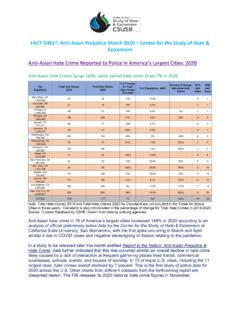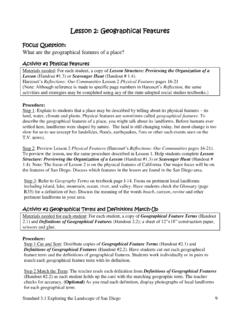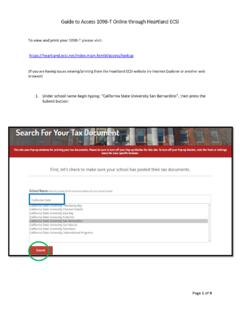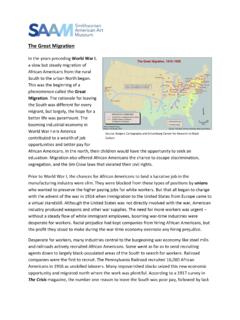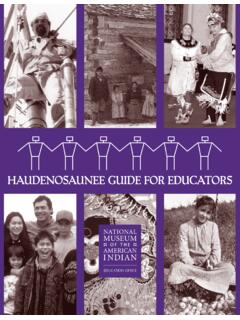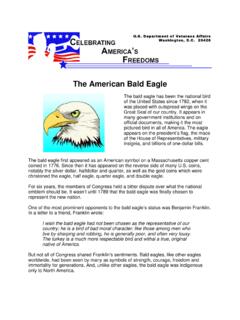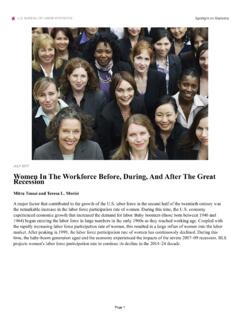Transcription of The American Revolution: Step-by-Step Activities to Engage ...
1 1 The American Revolution: Step-by-Step Activities to Engage Children in Why the American Colonists Went to War Against great Britain, including the Struggles of the Colonists, a Reader s Theater, Timelines, and More! Table of Contents 1 Acknowledgements 2 Description of the Unit 3 Compelling and Supporting Questions 3 Academic History-Social Science Content Standards and 4 Historical and Social Sciences Analysis Skills Common Core State Standards for English Language Arts 5 Lesson 1: A Timeline of the American Revolution 6 Lesson 2: The Stamp Act and the Townshend Acts 13 Lesson 3: What was Unfair? 16 Lesson 4: The Boston Massacre, 1770 24 Lesson 5: The Boston Tea Party and the Coercive Acts 30 Lesson 6: Katie s Trunk 35 Lesson 7: The Role of Colonial Women During the American Revolution 39 Lesson 8: The Declaration of Independence 42 Lesson 9: Thomas Paine's The American Crisis and The Brutal Winter 49 at Valley Forge Lesson 10: The Articles of Confederation 54 Lesson 11: The Treaty (Peace) of Paris 56 Lesson 12: Freedom s Journey 59 Resources for The American Revolution 64 2 Acknowledgements The American Revolution.
2 Step-by-Step Activities to Engage Children in Why the American Colonists Went to War Against great Britain, including the Struggles of the Colonists, a Reader s Theater, Timelines, and More! AUTHOR Priscilla H. Porter is the Director of the Porter History-Social Science Resource Center located at the Palm Desert Campus of California State University San Bernardino. A former elementary teacher, Dr. Porter is the author of numerous curriculum guides and is the senior author of Reflections, a Kindergarten to Grade 6 social studies textbook series published by Harcourt School Publishers Contributors to this curriculum guide include: Kimberly Clarke, Desert Sands Unified School District Dr. Rhoda Coleman, University of Southern California Rhonda Fort, Palm Springs Unified School District Kirsten Hill, Desert Sands Unified School District Diana Parsons, Los Nietos School District Karen Sanders, King s Schools, Palm Springs David Vigilante, San Diego Unified School District, Retired Stacey Ward, Palm Springs Unified School District Notes from the Author The first book in the Step-by-Step series for teachers of American History is Settling the Colonies.
3 It is available on To hear about my latest books, sign up for my exclusive New Release Mailing List by sending me an email at Requesting Your Review Reviews are especially important to authors. If you have enjoyed this book, please write a review of it on Copyright 2020 by Priscilla and Charles Porter Permission is hereby granted to reproduce and distribute this publication for educational and research purposes Direct inquiries to: Dr. Priscilla Porter Palm Desert Campus, California State University San Bernardino 37-500 Cook Street Palm Desert, California 92211 3 The American Revolution Description of the Unit The focus of this unit is on the major events that led to the American Revolution, including the struggles the citizens endured to gain their freedom. The many complexities of the American Revolution cannot be covered in these short lessons.
4 This unit serves as an introduction to the topic and provides a baseline for further study. Lesson 1 begins by creating a timeline of events that serves as a scaffold on which they can hang the names and events related to the American Revolution. Drawing on information from multiple print or digital sources, students quickly locate dates for a list of events and quote accurately from the source when defending their answer. While creating this Timeline of the American Revolution, students are exposed to academic, domain-specific vocabulary and the names and brief descriptions of key events. Lesson 2 is a simulation in which the Royal Tax Commissioners stamp all papers written by students and force them to pay a tax or imprisonment. Lesson 3 is a two-day activity during which students perform five Readers Theater plays, and they create protest posters that reveal what the colonists felt were unfair and ultimately brought about the revolution.
5 Lesson 4 shows the use of artwork as propaganda (Paul Revere s Boston Massacre). Students analyze the engraving from an artistic perspective and by putting themselves in the picture. The Boston Tea Party and the Coercive (Intolerable) Acts are the focus of Lesson 5. In Lesson 6, a narrative text (Katie s Trunk) is used to enrich the study of history by using literature about the period. The story reveals the way people saw themselves, their ideas, and their fears. Multiple viewpoints are introduced along with a decision-making activity in which students evaluate the decisions of the main character. Lesson 7 looks at the role of Colonial Women during the American Revolution. In Lesson 8, students work to understand the people and events associated with the drafting and signing of the Declaration of Independence.
6 They determine the meaning of domain-specific words, read, and comprehend informational text, and explain the relationships or interactions between two or more events. In Lesson 9, excerpts from Thomas Paine s The American Crisis are analyzed along with the conditions at Valley Forge during the brutal winter of 1777-78. Lesson 10 analyzes the shortcomings of the Articles of Confederation. The war finally ends in Lesson 11 with The Treaty of Paris. Lesson 12 returns to the Timeline of the American Revolution to place key events of the revolution in chronological order and use multiple print and digital sources to identify events, key people, and the causes and effects of the American Revolution. Compelling Question: Why did the American Colonists go to war against great Britain?
7 Supporting Questions: Lesson 1: A Timeline of the American Revolution How do I use multiple print and digital sources to locate specific information? What were the major events of the American Revolution and in what order did they occur? Lesson 2: The Stamp Act and the Townshend Acts Why did the colonists begin to rebel against great Britain? Lesson 3: What was Unfair? What disagreements led to the American Revolution? 4 Lesson 4: The Boston Massacre What were the multiple causes and effects of the Boston Massacre? Lesson 5: The Boston Tea Party and the Coercive Acts Why did the Sons of Liberty dump crates of British tea into Boston Harbor? What was the British response to the Boston Tea Party? How effective was the Boston Tea Party? Lesson 6: Katie s Trunk What happened to a family who remained loyal to England?
8 Lesson 7: The Role of Colonial Women During the American Revolution What different roles did women play during the American Revolution? What were the trade-offs and opportunity costs in the decision to boycott British goods? Lesson 8: The Declaration of Independence What is the Declaration of Independence and how did it mark the creation of a new nation? Lesson 9: Thomas Paine s The American Crisis and The Brutal Winter at Valley Forge What was the impact of Thomas Paine's The American Crisis? What were the conditions at Valley Forge during the brutal winter of 1777-78? Lesson 10: The Articles of Confederation What was the purpose of the Articles of Confederation? What were the weaknesses of the Articles of Confederation? Lesson 11: The Treaty (Peace) of Paris How did the British army compare with the Continental army?
9 What were the reasons for the victory over the British at Yorktown? Lesson 12: Freedom s Journey What were the key events of the American Revolution? History-Social Science Content Standards Students explain the Causes of the American Revolution Understand how political, religious, and economic ideas and interests brought about the Revolution ( resistance to imperial policy, the Stamp Act, the Townsend Acts, taxes on tea, Coercive Acts). Understand the people and events associated with the drafting and signing of the Declaration of Independence and the document's significance, including the key political concepts it embodies, the origins of those concepts, and its role in severing ties with great Britain. Historical and Social Sciences Analysis Skills Chronological and Spatial Thinking Students place key events and people of the historical era they are studying in a chronological sequence and within a spatial context; they interpret timelines.
10 Research, Evidence, and Point of View Students pose relevant questions about events they encounter in historical documents, eyewitness accounts, maps, and artworks. Historical Interpretation Students summarize the key events of the era they are studying and explain the historical contents of those events. Students identify and interpret the multiple causes and effects of historical events. 5 Common Core State Standards for English Language Arts Activities are included in this unit to develop standards for reading, writing, listening, and speaking. Refer to the abbreviations listed throughout the unit. For example, RI refers to Reading for Informational Text, Grade 5, Standard 1 Reading Standards for Information Text (RI) RI Quote accurately from a text when explaining what the text says explicitly.



